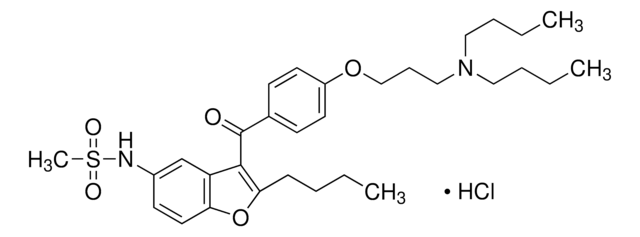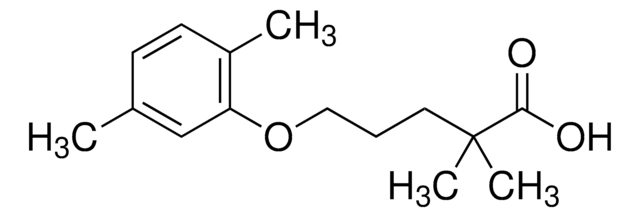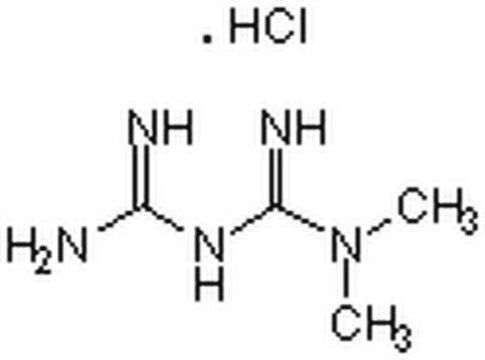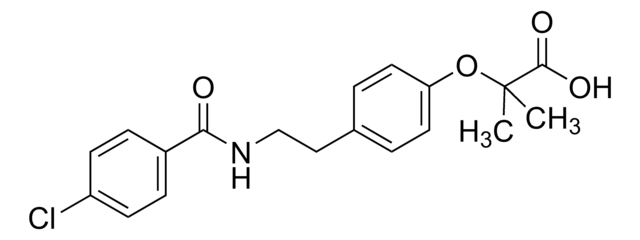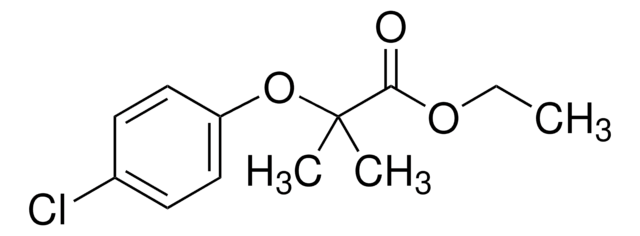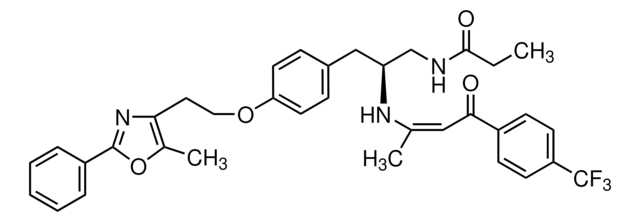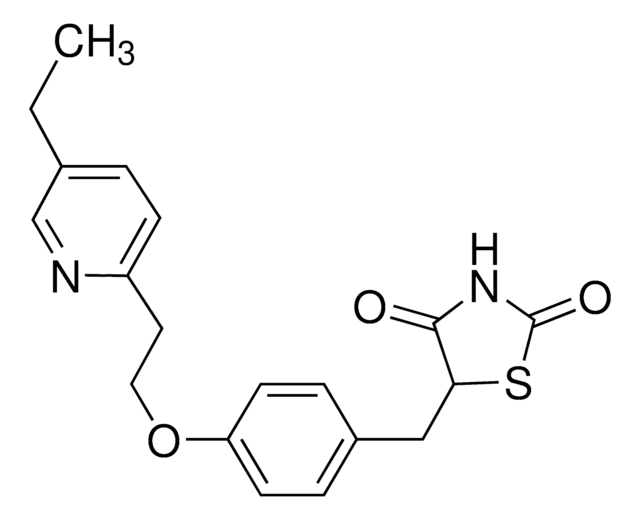F6020
Fenofibrate
≥99% (TLC), powder, lipid regulating drug
Synonym(s):
2-[4-(4-Chlorobenzoyl)phenoxy]-2-methylpropanoic acid isopropyl ester
About This Item
Recommended Products
product name
Fenofibrate, ≥99%, powder
Quality Level
Assay
≥99%
form
powder
color
off-white
originator
Abbott
storage temp.
room temp
SMILES string
CC(C)OC(=O)C(C)(C)Oc1ccc(cc1)C(=O)c2ccc(Cl)cc2
InChI
1S/C20H21ClO4/c1-13(2)24-19(23)20(3,4)25-17-11-7-15(8-12-17)18(22)14-5-9-16(21)10-6-14/h5-13H,1-4H3
InChI key
YMTINGFKWWXKFG-UHFFFAOYSA-N
Gene Information
human ... PPARA(5465)
Looking for similar products? Visit Product Comparison Guide
Application
- to study its effect on plasma lipids, liver phenotype and gene expression
- to study its impact on endothelium-dependent vasodilatation of thoracic aorta
- to administer to NASH knock-in mice along with a high fat diet (HFD) to study its effect
Biochem/physiol Actions
Features and Benefits
Signal Word
Warning
Hazard Statements
Precautionary Statements
Hazard Classifications
STOT RE 2 Oral
Target Organs
Liver
Storage Class Code
11 - Combustible Solids
WGK
WGK 1
Flash Point(F)
Not applicable
Flash Point(C)
Not applicable
Personal Protective Equipment
Certificates of Analysis (COA)
Search for Certificates of Analysis (COA) by entering the products Lot/Batch Number. Lot and Batch Numbers can be found on a product’s label following the words ‘Lot’ or ‘Batch’.
Already Own This Product?
Find documentation for the products that you have recently purchased in the Document Library.
Customers Also Viewed
Articles
Lipoproteins package cholesterol for transport in plasma, essential for lipid transport and cellular function in the body.
Discover Bioactive Small Molecules for Lipid Signaling Research
Our team of scientists has experience in all areas of research including Life Science, Material Science, Chemical Synthesis, Chromatography, Analytical and many others.
Contact Technical Service